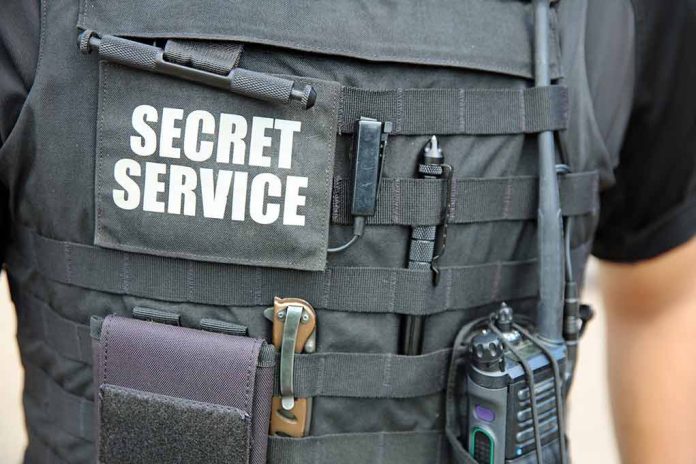
Whistleblower revelations have unveiled alarming funding lapses within the Secret Service, raising questions about U.S. election security readiness amid troubling recent assassination attempts.
At a Glance
- Whistleblower documents reveal Secret Service funding lapses and security failures.
- Senator Grassley calls for investigation into financial mismanagement.
- Concerns raised after two assassination attempts on former President Trump.
- Criticism over Secret Service handling at Trump rally and assassination attempts.
Whistleblower Alarms over Secret Service Lapses
Whistleblower documents reveal significant funding lapses within the Secret Service, affecting its ability to safeguard election activities. Senator Chuck Grassley has presented internal evidence showing financial mismanagement resulting in agents paying out of pocket due to delayed fund transfers—a violation of the Antideficiency Act. Such funding issues jeopardize the effectiveness of Homeland Security’s jump teams at a critical time. Recent events have sparked alarm about whether resource management is adequate to prevent further threats to election security.
Whistleblowers highlighted significant security failures at a Trump rally in Butler, Pennsylvania, revealing a concerning assassination attempt on President Trump. These failures were compounded by resource shortages linked to events such as the NATO summit and an event featuring First Lady Jill Biden. An attendee was fatally shot, and two others were critically wounded, increasing scrutiny on the Department of Homeland Security’s ability to manage risks effectively. This has led House Judiciary Committee Chairman Jim Jordan to seek answers from the FBI regarding these security lapses.
Bipartisan Report Exposes Systematic Failures
A bipartisan interim report has uncovered systemic failures in Secret Service protocols, exposing inadequate coordination and planning of security measures at former President Trump’s rallies. The report highlights how the Secret Service failed to clearly define responsibilities and refused requests for additional security resources, resulting in technical troubles with counter-drone systems and radio issues.
“From planning missteps to the siloed and flawed communication to the lack of effective coordination between law enforcement, to the breakdowns in technology, the Secret Service’s failures that allowed an assassination attempt on former President Trump at his July 13 rally were shocking, unacceptable, and preventable – and they led to tragic consequences,” said Chairman Peters.
Reports also indicate that Secret Service coordination with state and local law enforcement was inadequate, leaving crucial areas, such as the AGR Building, insufficiently covered. This failure to ensure security coverage potentially contributed to the successful execution of the assassination attempt, which has prompted further investigations and calls for accountability from influential governmental bodies.
Calls for Accountability and Security Overhaul
The repeated assassination attempts on former President Trump have underscored the urgent need for regulatory reform and enforcement of proper security measures within U.S. Secret Service protocols. Whistleblowers have noted agents deserting their posts due to inadequate conditions, worsening the security landscape. Without addressing the financial and administrative inefficiencies that currently plague the Secret Service, the safety of presidential candidates and election integrity remains in jeopardy.
“According to one whistleblower,” Hawley wrote in his letter to DHS, “the night before the rally, U.S. Secret Service [USSS] repeatedly denied offers from a local partner to utilize drone technology to secure the rally. This means that the technology was both available to USSS and able to be deployed to secure the site. Secret Service said no.”
Senator Grassley has adamantly pushed for investigations to ensure resource mismanagement and security flaws are swiftly and effectively addressed. As election activities ramp up, determining the full scope of these issues is pivotal to bolstering the nation’s election security initiatives. Strong leadership and decisive action remain the cornerstones of fortifying America’s democratic processes against any threats.
Sources:
- Peters, Paul, Blumenthal and Johnson Release Bipartisan Report Examining U.S. Secret Service Security Failures and Assassination Attempt on Former President Trump
- Whistleblowers Expose Historic Secret Service Failure







